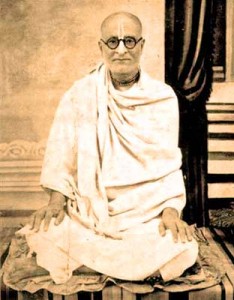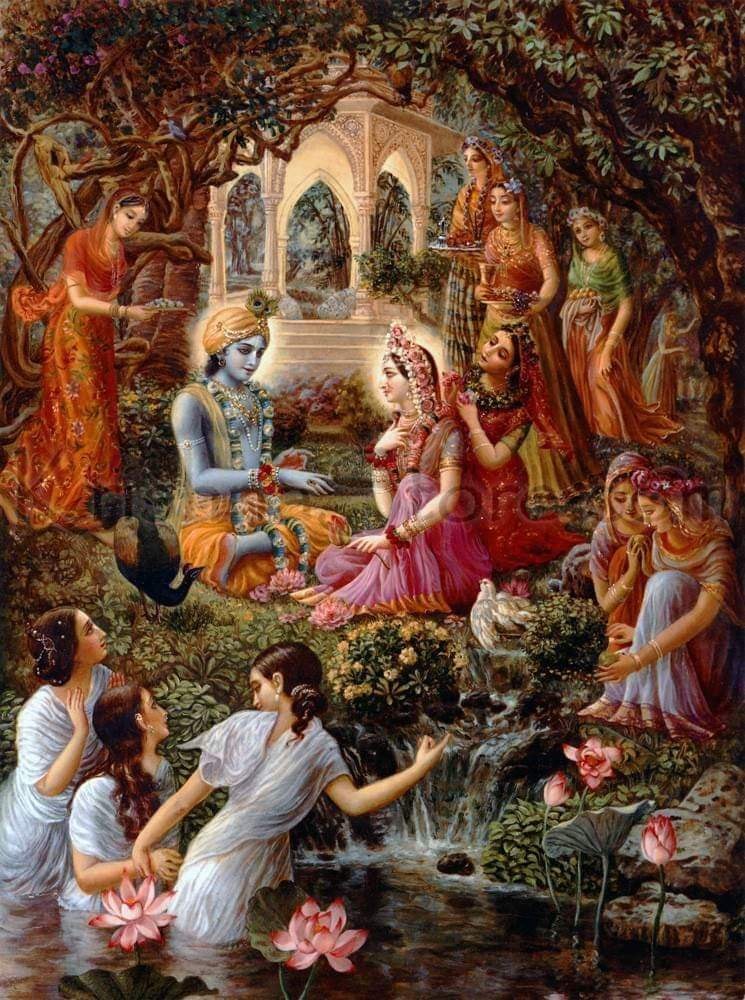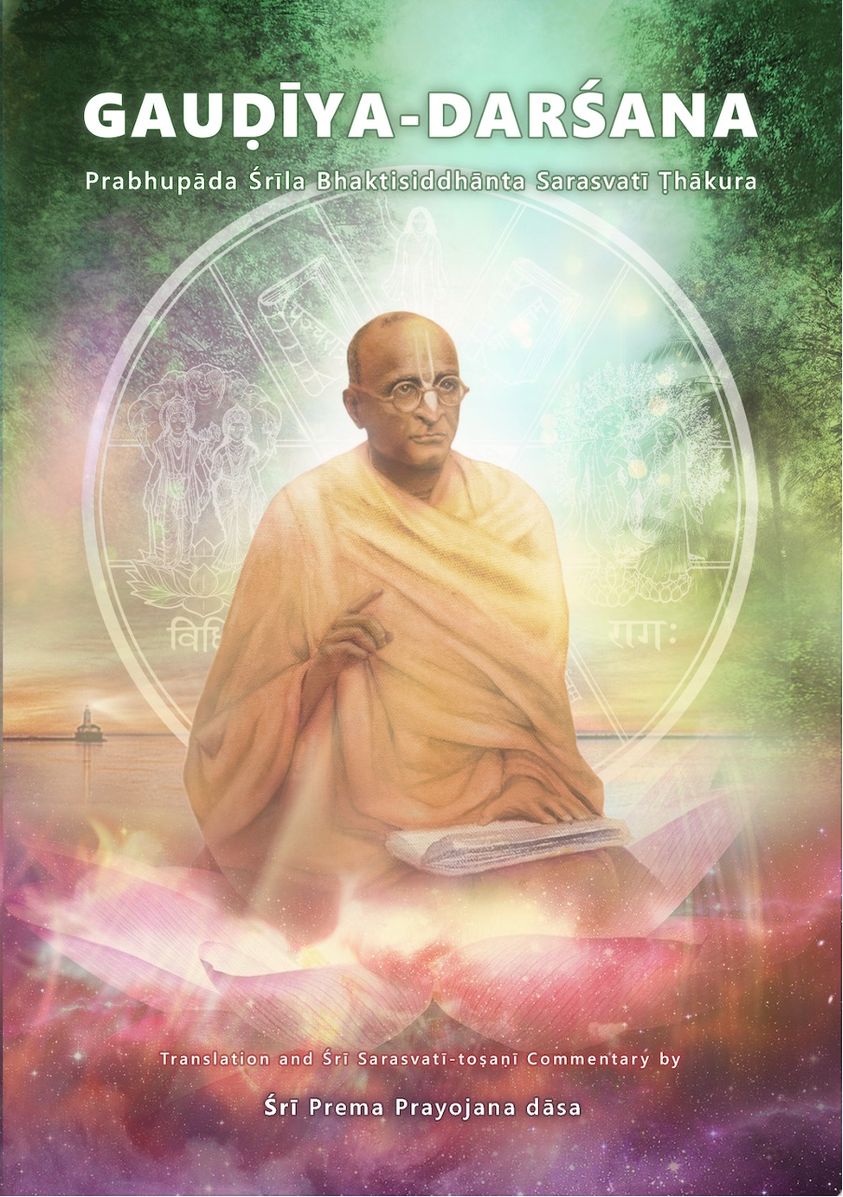
Śrīla Bhaktisiddhānta Sarasvatī
Ṭhākura Prabhupāda
Mundane Morality and Service to the Supreme Lord
“Pārthiva nīti and Hari-seva”
By Śrīla Bhaktisiddhānta Sarasvatī Ṭhākura Prabhupāda
This article was originally posted by the Rays of The Harmonist team. Please see the credits at the end of the article
The following is an editorial note from the original Bengali publication of this letter:
The topics of this letter are as follows:
It is essential to serve Hari, guru and Vaiṣṇavas with humility;Devotees are not inclined to exhibit mundane moral conduct such as devotion to one’s parents in place of engaging in service to śrī guru and Gaurāṅga, which is supremely auspicious; restraining the mind is the means by which the urge to enjoy those sense objects that are unfavourable to bhakti may be endured; knowing oneself to be the eternal servant of śrī guru and Gaurāṅga, knowing the object of our worship to be completely faultless, and accepting oneself to be full of faults is the duty of the guru-sevaka; becoming the object of the mercy of śrī guru and Vaiṣṇavas is the cause of all auspiciousness.
The letter
Śrī Śrī Guru Gaurāṅgau Jayataḥ!!
Śrī Caitanya Maṭha,
20 January, 1931
My dear *******,
During our sojourn in this material world, we constantly chase after the apparent promise of happiness, like chasing a mirage. Please bless me, therefore, so that I do not enter into misery due to being governed by this unyielding propensity of mine. Because of my aversion to Śrī Hari, for many previous lifetimes I could not achieve permanent welfare or auspiciousness – not by following the path of anyābhilāṣa (separate material desires), nor by karma (fruitive, reward seeking activities), jñāna (knowledge aimed at impersonal liberation), yoga (activities aimed at attaining mystic powers), vrata (vows),tapasya (austerity) and so on.
And in this life, even though I have had the opportunity to receive the transcendental association of the devotees of the Supreme Lord, I became occupied with the restless wandering of uncontrollable senses. Who could be more unfortunate than I am?! I am a fool, for I gave up real wealth [Vaiṣṇava association] and, with great regard for the whimsical disorderliness of the living entities of this material world, who are suffering from the three-fold miseries, I became extremely inclined to earn their recognition.
So although I have been chasing after the hope of receiving your blessings, I was not able to serve you. I am even more abominable than the worm in the stool; I am even more sinful than Jagāi and Mādhāi. My eternal well-wishers have seen my pathetic condition and have consequently made enormous efforts to elevate me. But I am drowning in the currents of intense restlessness, so I have not listened to their words.
In regard to your firm decision to display your devotion to your parents in order to achieve worldly peace and happiness, and your decision to continue doing so, I have no capacity to give approval because my mind is not as loyal to principles of worldly morality as yours. I cannot even serve the instructions of Śrī Hari, guru and the Vaiṣṇavas, so how could I ever have time to accept the advice of anyone else? Hence, I offer my prostrated obeisances at the feet of worldly well-wishers from a great distance.
There is one more matter wherein my opinion is different from yours. Upon seeing the gross faults and material weaknesses of certain persons, you now wish to act just as blindly, following the flock of sheep. I am not ready to give weight to such unfavourable matters. While reading the bhikṣu-nīti (principles related to renunciants) in Chapter 23 of the Eleventh Canto of Śrīmad Bhāgavatam, I have been assured that by becoming tolerant like a tree, I can bear all assaults and all difficulties.
But you, having completely lost composure, say that the person whom I refer to as ideal has limitations and material faults, which have lead me down the wrong path. However, I say, solely by controlling my mind, I shall be able to tolerate the strong currents of all unfavourable things, for everything is the fault of my mind alone; no one else in this world can cause me any harm.

Lord Chaitanya (right Śrī Gaura)
Lord Nityananda (left)
and Sri Sri Radha and Krishna
Śrīla Vaṁśīdāsa Bābājī Mahārāja considered himself to be the servant of Śrī Gaura and Nityānanda Prabhu, and has ascertained that anything inauspicious is the fault of his worshipful Lords’ servant – namely himself. Kindly bless me: O when will that day arise in my life when I shall be able to understand this matter? By your blessings may I come to understand that through my mind and words I have caused anxiety to all living beings, and may this thought become more and more prominent in me.
It seems I was totally unable to be a fitting servant for you. Therefore, on the advice of your dear ones, you have become anxious to serve them instead. I am lethargic and foolish, and therefore I am sad and anguished that I could not appropriately serve such a competent personality as you. Please shower your mercy upon me. Only then will I meet with auspiciousness.
Servant of the devotees of Śrī Hari
Śrī Siddhānta Sarasvatī
[Translated from Śrīla Prabhupādera Patrāvalī
by the Rays of The Harmonist team]
For questions about this article please write to devarsi@harekrishnasociety.com
_____________________

Rays of The Harmonist On-line; Year-5, Special Online-Edition, “Pārthiva nīti and Hari-seva – Mundane morality and Service to the Supreme Lord”, by Śrīla Bhaktisiddhānta Sarasvatī Ṭhākura Prabhupāda is licensed under a Creative Commons Attribution-Share Alike 3.0 Unported License to ensure that it is always freely available. You may redistribute this article if you include this license and attribute it to Rays of The Harmonist. Please ask for permission before using the Rays of The Harmonist banner-logo.

![20101104bkmain[1]](http://www.harekrishnasociety.com/wp-content/uploads/2013/01/20101104bkmain1-300x198.jpg)
 Posted in
Posted in 







